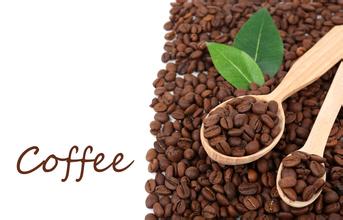Boutique coffee Guatemala coffee beans introduction to Guatemala coffee beans
Coffee production in Guatemala has declined relatively, at 700kg per hectare, while that in El Salvador is 900kg per hectare and that in Costa Rica is even more astonishing, at 1700 kg per hectare. The export of dangerous Dimara coffee is controlled by private companies, but the National Coffee Council (Asociacion Nacional de Cafe) controls other sectors of the coffee industry. At present, some of the best quality coffee from Guatemala is exported to Japan, where each cup of coffee sells for $3 to $4. Most small-scale producers are descended from the Mayans (Mayan), who like to call cups local people.
Currently, they are also benefiting from a U.S.-funded project, known locally as The Project, which plans to invest $2.5 million to encourage the opening of small, high-quality coffee plantations. The main areas rich in high-quality coffee in Guatemala are Lake Attilan (Lake Atitlan) and Huehuentenango. The purpose of the project is to help restore the vicious circle of high yield and low quality that has plagued the world coffee industry. For example, Bourbon trees grow taller and produce fewer beans than the new dwarf trees, and although they all belong to Arabica coffee varieties, bourbon trees produce better beans and are more popular with gourmets. The project also hopes to encourage local producers to process their own coffee beans, as most coffee fruits are now sold to middlemen, and if coffee processing can be done in local factories, its value and even quality may be improved.
Antigua (Antigua) is also a famous producer of coffee. Antigua coffee is produced in Hacienda Carmona, where the best quality coffee is EL Pulcal, which is not only of good quality, but also has a stronger flavor, richer taste and stronger tobacco flavor than other Guatemalan coffees. Every 30 years or so, the area near Antigua is hit by a volcanic eruption, which provides more nitrogen to the already rich land, and plenty of rainfall and sunlight make the place more suitable for growing coffee. Other coffee producers include San Marco, Oriente & Coban, Palcya, Mataquescuintia and La Uman in Zacapa. The establishment of the Special Coffee Association means that the Guatemalan government has begun to pay attention to high-quality coffee, and the efforts made for it will soon bear fruit.

Important Notice :
前街咖啡 FrontStreet Coffee has moved to new addredd:
FrontStreet Coffee Address: 315,Donghua East Road,GuangZhou
Tel:020 38364473
- Prev

Introduction of boutique coffee El Salvador coffee beans
Unique, mild-tasting coffee. ElSalvador is one of the small countries in Central America with a dense population. The flavor of its coffee is characterized by excellent balance. Today, this coffee accounts for 40% of the country's exports. 35% of the extra hard beans of the best coffee are exported to Germany from January to March. In the early 1990s, guerrilla warfare greatly damaged the country's national classics.
- Next

Characteristics of Lion King Sun-flavored Coffee beans treated by Sebastian Dharma
The coffee flavor of Sidamo is very diverse, and the different soil types, microclimate and countless native coffee species make the coffee produced in each town have obvious differences and characteristics. In 2010-12, it won three consecutive high marks from coffee review 92 to 94, which shows the extraordinary value of raw beans in this area! Domestic horizontal
Related
- Does Rose Summer choose Blue, Green or Red? Detailed explanation of Rose Summer Coffee plots and Classification in Panamanian Jade Manor
- What is the difference between the origin, producing area, processing plant, cooperative and manor of coffee beans?
- How fine does the espresso powder fit? how to grind the espresso?
- Sca coffee roasting degree color card coffee roasting degree 8 roasting color values what do you mean?
- The practice of lattes: how to make lattes at home
- Introduction to Indonesian Fine Coffee beans-- Java Coffee producing area of Indonesian Arabica Coffee
- How much will the flavor of light and medium roasted rose summer be expressed? What baking level is rose summer suitable for?
- Introduction to the characteristics of washing, sun-drying or wet-planing coffee commonly used in Mantenin, Indonesia
- Price characteristics of Arabica Coffee Bean Starbucks introduction to Manning Coffee Bean Taste producing area Variety Manor
- What is the authentic Yega flavor? What are the flavor characteristics of the really excellent Yejasuffi coffee beans?

